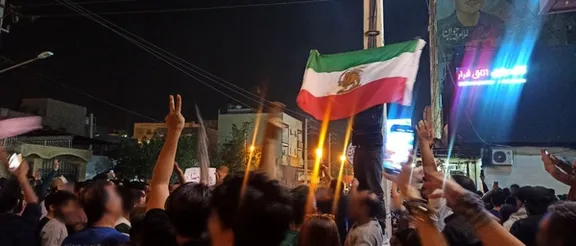During a visit to Moscow Iran’s Oil Minister announced that Russia has agreed to export 55 billion cubic meters (bcm) of gas annually to Iran, claiming that this would turn Iran into a regional gas hub.
Mohsen Paknejad said on April 25 that various routes were considered and it was finally agreed that the gas would be delivered via land through the Republic of Azerbaijan, with Russia’s gas handed over to Iran in Astara.
While the Mozdok–Baku pipeline can transfer Russian gas to Azerbaijan, and the Baku–Astara pipeline can transport it to Iran, the combined daily capacity of these pipelines is only about six million cubic meters per day (mcm/d).
By contrast, Iran faces a gas shortfall of approximately 150 mcm/d during warmer months—rising to double that amount in colder seasons.
This means that the proposed Russian gas deliveries to Iran would not even cover a small portion of the country’s gas deficit—let alone turn Iran into a regional gas hub.
Paknejad has described this as the “first phase” of the gas deal, implying that new pipelines will be required to realize the full annual export volume of 55 bcm, which equals around 150 mcm/d.
The key issue here is that Gazprom, Russia’s state-run gas company meant to supply the gashas suffered massive losses of $18 billion over the past two years after losing its European markets following Russia's full-scale invasion of Ukraine.
Gazprom lacks the funds to complete an even more politically desirable “Power of Siberia 2” pipeline to China designed for the same annual capacity of 55 bcm.
Building a new pipeline connected to Russia’s main gas transmission network to deliver gas to Iran would require a stretch of at least 1,000 kilometers, demanding more than $10 billion in investment. If the pipeline were to cross the Caspian Sea, the cost could exceed $20 billion.
Another crucial point is that to become a regional gas hub, Iran must receive large volumes of gas from Russia and sell it to neighboring countries.
But Turkey already receives Russian gas directly via two pipelines, and most of Iran’s other northern and southern neighbors are gas producers or exporters themselves. Iran’s only potential customers would be Iraq, Pakistan, and Afghanistan.
Iraq plans to eliminate its need for gas imports within the next few years. Pakistan, despite a gas deal with Iran signed in 2009, has not built the pipeline due to sanctions.
Under the current contract, Iran would export only 7.5 bcm annually to Pakistan—raising questions about what Iran plans to do with the rest of the gas received from Russia.
Iran suffers from a gas deficit of 150 mcm/d in summer and 300 mcm/d in winter, and it could use Russian gas to meet its domestic needs.
However, 55 bcm of gas is worth around $15 billion, and Iran simply doesn’t have the money to pay for such a massive volume of gas. Even if it did, the government would need to provide enormous subsidies for its domestic use, given that gas prices in Iran’s domestic market are extremely low.
To illustrate, the Iranian government plans to sell 240 bcm of gas to the domestic market this year, earning only about 3,300 trillion rials in revenue—which, at the current exchange rate, amounts to less than $4 billion.
More Hollow Claims of New Oil Deals
Iran’s oil minister also announced that $4 billion in oil contracts have been signed with Russian companies.
Over the past two decades, Russian firms have signed more than a hundred contracts and memoranda of understanding (MoUs) with Iran, but almost none of the projects have ever gotten off the ground.
Paknejad provided few details, merely stating that “four contracts worth $4 billion have been signed with Russian companies for the development of seven oil fields.”
However, three years ago, Mohsen Khojastehmehr, then-CEO of the National Iranian Oil Company, made a similar announcement, saying that “contracts with Russian companies for the development of seven oil fields, worth $4 billion, have entered the operational phase.”
This strongly suggests that the contract Paknejad is referring to had already been signed years earlier—yet no action has been taken by the Russian side, contrary to Khojastehmehr’s assertions.
Back then, Iran and Gazprom had also signed 40 oil and gas memoranda of understanding, none of which led to any contracts or actual projects.
At the time, Iranian oil officials under President Ebrahim Raisi described the MoUs as being worth “$40 billion”, calling them “the largest deal in the history of the country’s oil and gas sector.”
Unlike formal contracts, MoUs do not carry any binding legal obligations, nor do they typically have a defined financial value—they are merely frameworks for studies and future negotiations aimed at signing actual contracts.






